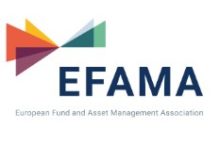
Bron
EFAMA
The European Commission’s initiative for a Renewed Sustainable Finance Strategy comes at a time of unprecedented environmental, economic and social challenges. In the face of accelerating climate change and the ongoing pandemic, European institutions and the financial sector share the urge for ambitious and effective policies to promote sustainable growth and an inclusive economic recovery. Today, EFAMA, representing the European investment management industry, reiterated its full support to the objectives of the EU Green Deal and the Paris Agreement. EFAMA members are committed to play their role to help achieving the Commission’s objective of channelling at least €1 trillion towards sustainability-related investments over the next decade.
The 2018 Action Plan on Financing Sustainable Growth already set solid foundations for a framework that integrates sustainability in investment decisions. As many legislative proposals were developed in parallel, some inconsistencies and gaps have emerged. The renewed European Commission’s strategy should aim at putting together the different pieces of the regulatory puzzle (EU taxonomy, SFDR, sustainable benchmarks, integration of sustainability considerations in UCITS, AIFMD, MiFID II, EU Ecolabels, etc.) to make the new rules work in practice in a well-sequenced, consistent and coordinated manner.
“While we recognise potential benefits in a system that identifies harmful activities, once properly implemented, the ‘Do No Significant Harm’ criteria of the EU Taxonomy Regulation will de facto fulfil this purpose . We therefore question the need to develop a separate and exhaustive list of brown activities as currently suggested by the Commission. This would add to an already complex sustainable finance regulatory framework”, commented EFAMA’s Director General Tanguy van de Werve.
EFAMA favours the establishment of a clear EU-wide trajectory on greenhouse gas emission reductions. Such transition pathways for each economic sector would allow for concrete assessments of investee companies’ progress towards the Paris Agreement objectives and effectively mobilise transition investments.
EFAMA also fully supports the objective of further promoting sustainable investments, including towards retail investors.
“Recognising the urgent need of further promoting sustainable investments, and mindful of asset managers’ fiduciary duty, it is essential that financial advisers take all necessary steps to ensure that retail investors are asked about their sustainability preferences in a straightforward and suitable way“, added T. van de Werve.
EFAMA’s recommendations for a Renewed Sustainable Finance Strategy include:
- Improve the availability of ESG data and the relevance of non-financial reporting
ESG data on investee companies are crucial for asset managers to satisfy end-investors’ demands and meet the new ESG regulatory requirements. A swift review of the Non-Financial Reporting Directive (NFRD) should result in more meaningful, comparable, reliable and publicly available ESG disclosures on investee companies, which are essential to assess sustainability risks and opportunities as well as adverse impacts of investment decisions on sustainability factors.EFAMA also strongly suggests to establish an EU-wide ESG database, leveraging on digitalisation. Such a database has the potential to alleviate the data gap, especially in the short- to medium-term.
- Ensure that the preferences of (retail) investors are taken in due consideration
Asset managers are bound to fiduciary obligations and need to follow end-investors’ preferences, which increasingly consider the impact of investment decisions on sustainability. However, asset managers cannot contradict their fiduciary duty by forcing sustainability considerations upon their clients. EFAMA therefore believes that the consideration of adverse impacts of investment decisions on sustainability should not be required for all investments but only when this is in line with end-investors preferences. - Enhance the transparency of sustainability research and ratings
Measures to improve the availability of public ESG information would reduce investors’ reliance on third-party providers which, combined with the high levels of concentration in the market for ESG ratings and data, contributes to raising the costs for ESG information. Despite some improvements in ESG data in the recent years, the comparability, quality and reliability of information available in the market from third-party providers is generally insufficient to support investment decisions. EFAMA would welcome increased transparency of data sources, of methodologies used, as well as on how conflicts of interest are managed. - Prioritise finalisation of DNSH criteria under the EU taxonomy instead of developing a distinct ‘brown taxonomy’ which would result in undue complexity
While EFAMA recognises potential benefits in a system that identifies harmful activities, the association also believes that the EU taxonomy for environmentally sustainable activities and, in particular, its ‘Do No Significant Harm’ (DNSH) criteria, will de facto fulfil this purpose and thus the work on the EU taxonomy should be prioritised. The development of a separate and exhaustive list would significantly increase the complexity of an already complex sustainable finance framework and result in potential confusion, with counterproductive effects. - Promote long-termism and investor engagement with a proper implementation of the Shareholder Rights Directive II
The recent revision of the Shareholder Rights Directive aims at encouraging long-term shareholder engagement. EFAMA believes it has great potential to deliver on this goal. However, one year after its prescribed application date, it has still not been transposed properly by all Member States. Therefore, the association considers it premature to decide whether any further measures to tackle any undue short-termism in capital markets are necessary.
EFAMA’s detailed response is available here.



